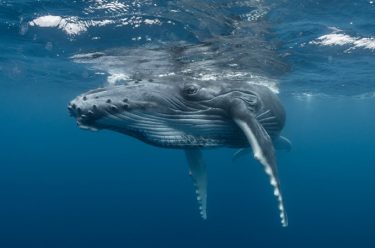
A population of humpback whales in the South Atlantic has rebounded from the brink of extinction.
Intense pressure from the whaling industry in the 20th century saw the western South Atlantic population of humpbacks diminish to only 450 whales. It is estimated that 25,000 whales were caught over approximately 12 years in the early 1900s.
Protections were put in place in the 1960s as scientists noticed worldwide that populations were declining. In the mid-1980s, the International Whaling Commission issued a moratorium on all commercial whaling, offering further safeguards for the struggling population.
A new study co-authored by Grant Adams, John Best and André Punt from the University of Washington’s School of Aquatic and Fishery Sciences shows the western South Atlantic humpback (Megaptera novaeangliae) population has grown to 25,000. Researchers believe this new estimate is now close to pre-whaling numbers.
The findings were published Oct. 16 in the journal Royal Society Open Science.
“We were surprised to learn that the population was recovering more quickly than past studies had suggested,” said Best, a UW doctoral student.
The study follows a previous assessment conducted by the International Whaling Commission between 2006 and 2015. Those findings indicated the population had only recovered to about 30% of its pre-exploitation numbers. Since that assessment was completed, new data has come to light, providing more accurate information on catches — including struck-and-lost rates — and genetics and life-history.
Read more at UW News »
